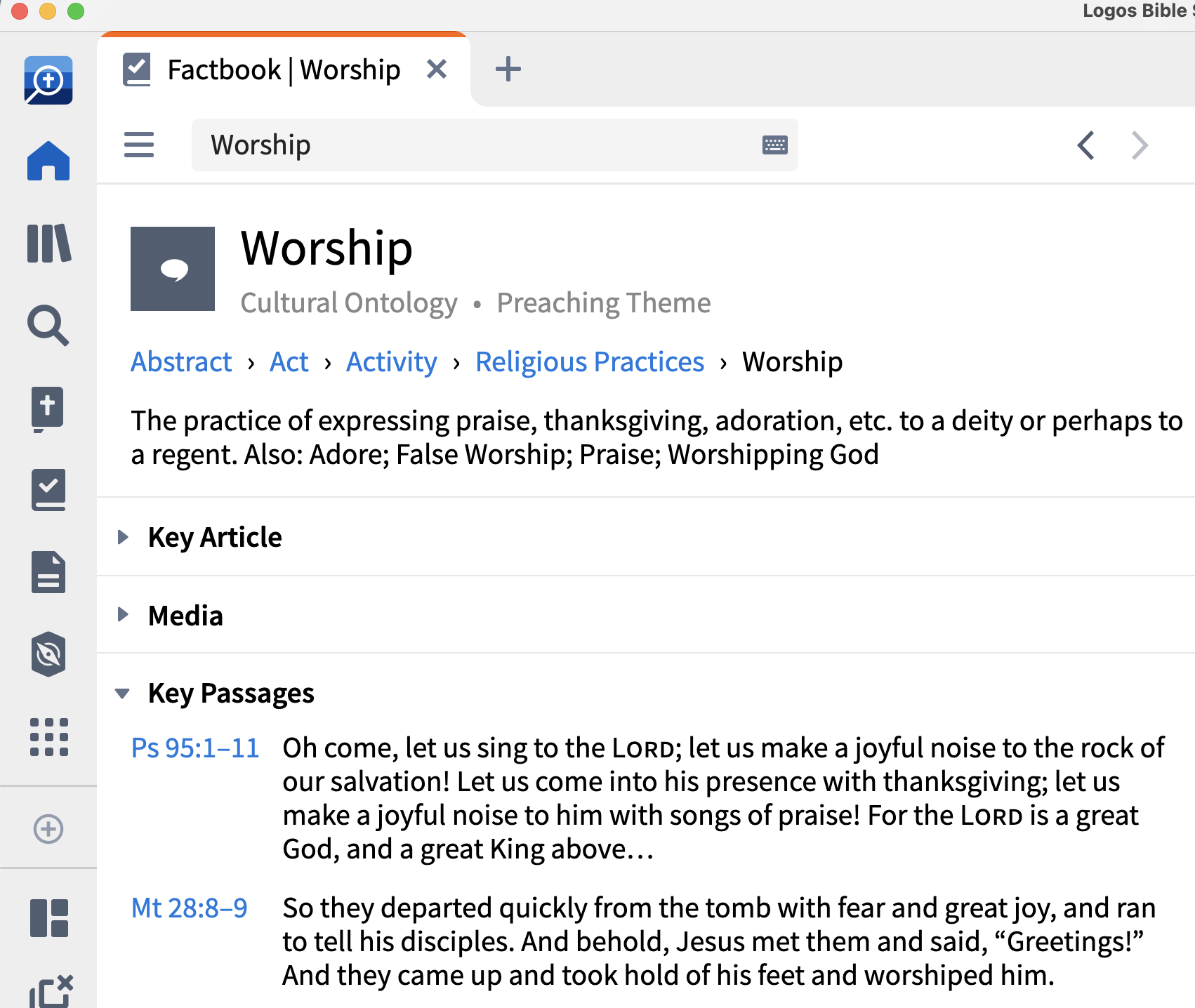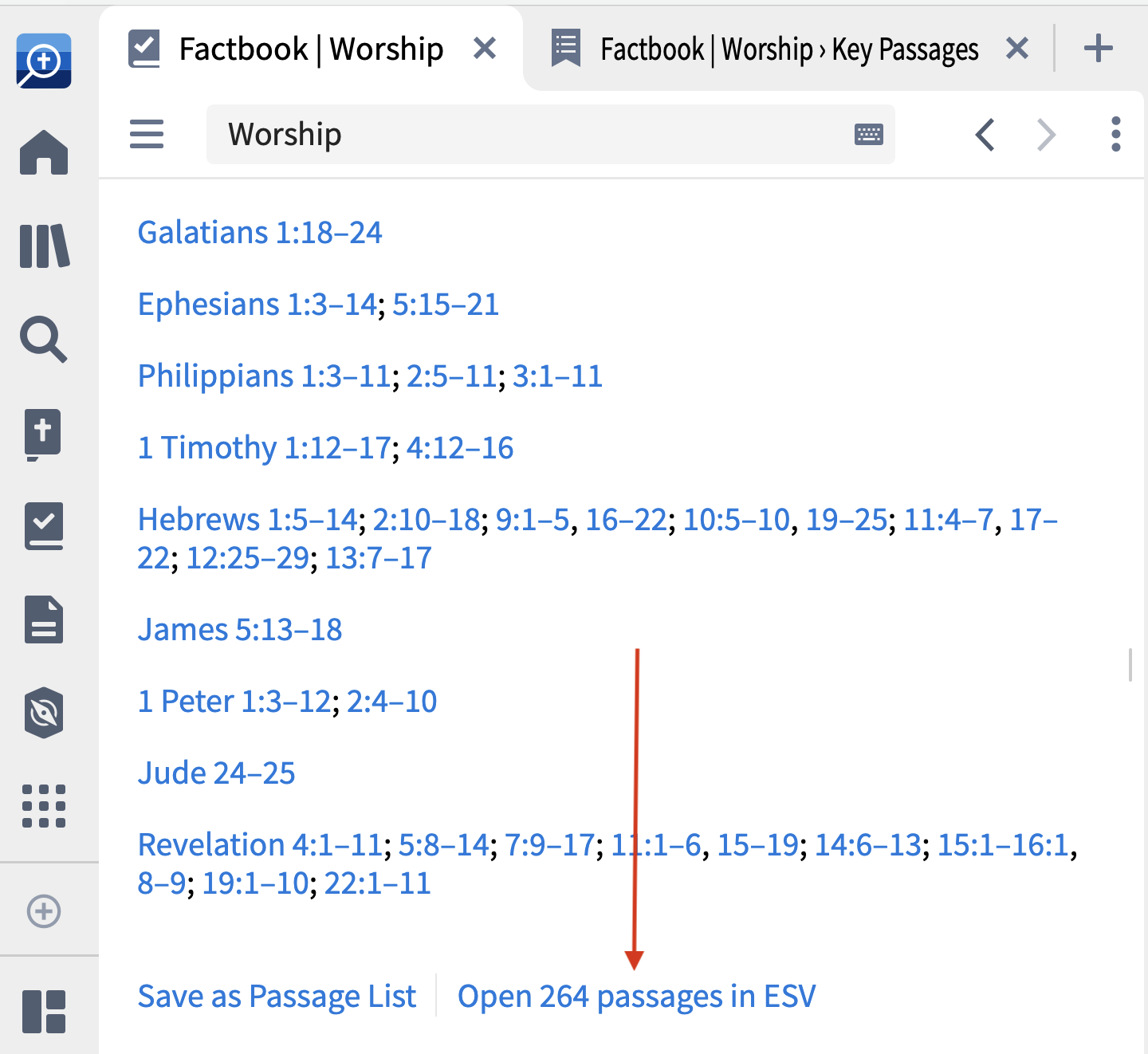“Is this worship?” That’s not a thought I expected to have nearing the end of my first 15K race, but there it was.
As I watched seagulls soaring overhead and one foot fell in front of the other, my reasoning went like this: “If our bodies are a temple (1 Cor 6:19), and we’re supposed to honor God with our bodies (1 Cor 6:20) and present them a living sacrifice (Rom 12:1), then is my training my body and running farther than I ever have (albeit quite slowly) a way of worship?”
I wasn’t so sure, so I searched for an answer myself and collected several theologians’ answers to what is worship?
- Definitions of worship
- Worship in the Bible
- 5 Key Bible passages about worship
- 7 Theologians answer “What is worship?”
- Everyday worship
- Related articles
- Books for further studying worship
Definitions of worship
The Lexham Theological Workbook’s brief definition of worship packs a punch:
Worship is the awed response to the saving acts and praiseworthy character of God.1
And Easton’s Bible Dictionary adds another element to the definition:
homage rendered to God which it is sinful (idolatry) to render to any created being (Exod 34:14; Isa 2:8). Such worship was refused by Peter (Acts 10:25, 26) and by an angel (Rev 22:8, 9).2
The distinction—that worship is to be given to God alone—helps differentiate it from what we might feel for people: gratitude, respect, love, perhaps even awe at their skill or accomplishments. Worship combines all those and extends beyond them.
Mark Labberton’s foreword to The Next Worship: Glorifying God in a Diverse World explains more of what that looks like:
Living in the light of the love of the triune God is supposed to be our human vocation. Our very life is made for this purpose, and all our energies are best discovered and unleashed when we see them in this context and for this purpose. A full vision of worship encompasses every dimension of life.
Worship actively places us before the true and living God and calls us to respond with every dimension of who we are. Faithful worship unlocks and opens, calls and guides us in our life as faithful exiles. As we live lives of worship, we bear witness to the grace of God that enlarges our hearts and minds and extends our capacities to love and serve.3
Closely related to worship is adore, which Easton’s defines as:
to worship; to express reverence and homage. The forms of adoration among the Jews were putting off the shoes (Exod 3:5; Josh 5:15), and prostration (Gen 17:3; Ps 95:6; Isa 44:15, 17, 19; 46:6). To “kiss the Son” in Psalm 2:12 is to adore and worship him. (See Dan 3:5, 6.) The word itself does not occur in Scripture.4
The word adore emphasizes that worship isn’t a purely logical thing, as adoration isn’t purely logical.
Knowing you should adore someone and feeling and expressing that adoration are different things.
So, too, knowing we should adore God—that we should worship him—and feeling and expressing adoration for him are different things.
If we participate in an outward act of worship (like singing in church) without also engaging our hearts, that’s not true worship. It’s more in line with the false worship Jesus talks about in Matthew 15:8:
This people honors me with their lips,
but their heart is far from me.
True worship is deep and genuine, incorporating more than our minds or our lips, but our hearts: note the word must in John 4:24.
God is spirit, and those who worship him must worship in spirit and truth.—John 4:24
Worship in the Bible
The Lexham Theological Workbook gives an excellent brief overview of the concept. It reveals that, while worship includes bowing down and singing in praise, worship can also take a different form—service:
Worship is the reverential response of creation to the all-encompassing magnificence of God (Isa 6:1–6; Exod 15:11; Psa 148:1–14). In the OT, worship encompassed a variety of activities. Bringing forward an offering to God was an act of worship (קָרַב, qārab). Bowing down in the presence of God was an outward display of an inner attitude of reverence before the Creator (חָוָה, ḥāwâ). The verb רוּם (rûm) could indicate that a person was “lifting up” or “exalting” God with praise. Together, these last two terms provide a rich image of worship: People both bow before God and lift him up in praise and wonder. The verb הָלַל (hālal) could be used to designate the act of celebrating God. The word “hallelujah” is derived from the Hebrew phrase הַלְלוּ־יָהּ (halĕlû-yāh), meaning “praise Yahweh.” This praise could involve זָמַר (zāmar, “singing”). Worship could also be described as “serving” (עָבַד, ʿābad) God. The ritual life of devotion was emblematic of a whole life given over to God.
The NT carries over many of the actions described as worship in the OT. The verb προσκυνέω (proskyneō) means to bow down as an act of worship, while κάμπτω (kamptō) signifies bending the knee or bowing in reverence to God. Other words for praising God include δοξάζω (doxazō), for the act of giving God glory, and εὐλογέω (eulogeō), for praising or blessing God.5
The Gospel Project’s video answering “What does ‘worship’ mean?” agrees that worship isn’t limited to singing praises.
5 key Bible passages about worship
I found these key passages in a few seconds in the Logos Bible app. I opened it to the Factbook, typed in “worship,” chose the top result, and there they were. Get Logos free to do in-depth Bible study on web, mobile, or desktop.

1. Psalm 95:1–11
Oh come, let us sing to the Lord; let us make a joyful noise to the rock of our salvation! Let us come into his presence with thanksgiving; let us make a joyful noise to him with songs of praise! For the Lord is a great God, and a great King above all gods. In his hand are the depths of the earth; the heights of the mountains are his also. The sea is his, for he made it, and his hands formed the dry land. Oh come, let us worship and bow down; let us kneel before the Lord, our Maker! For he is our God, and we are the people of his pasture, and the sheep of his hand. Today, if you hear his voice, do not harden your hearts, as at Meribah, as on the day at Massah in the wilderness, when your fathers put me to the test and put me to the proof, though they had seen my work. For forty years I loathed that generation and said, “They are a people who go astray in their heart, and they have not known my ways.” Therefore I swore in my wrath, “They shall not enter my rest.”
2. Matthew 28:8–9
So they departed quickly from the tomb with fear and great joy, and ran to tell his disciples. And behold, Jesus met them and said, “Greetings!” And they came up and took hold of his feet and worshiped him.
3. John 4:21–24
Jesus said to her, “Woman, believe me, the hour is coming when neither on this mountain nor in Jerusalem will you worship the Father. You worship what you do not know; we worship what we know, for salvation is from the Jews. But the hour is coming, and is now here, when the true worshipers will worship the Father in spirit and truth, for the Father is seeking such people to worship him. God is spirit, and those who worship him must worship in spirit and truth.”
4. Romans 12:1
I appeal to you therefore, brothers, by the mercies of God, to present your bodies as a living sacrifice, holy and acceptable to God, which is your spiritual worship.
5. Revelation 5:8–14
And when he had taken the scroll, the four living creatures and the twenty-four elders fell down before the Lamb, each holding a harp, and golden bowls full of incense, which are the prayers of the saints. And they sang a new song, saying, “Worthy are you to take the scroll and to open its seals, for you were slain, and by your blood you ransomed people for God from every tribe and language and people and nation, and you have made them a kingdom and priests to our God, and they shall reign on the earth.” Then I looked, and I heard around the throne and the living creatures and the elders the voice of many angels, numbering myriads of myriads and thousands of thousands, saying with a loud voice, “Worthy is the Lamb who was slain, to receive power and wealth and wisdom and might and honor and glory and blessing!” And I heard every creature in heaven and on earth and under the earth and in the sea, and all that is in them, saying, “To him who sits on the throne and to the Lamb be blessing and honor and glory and might forever and ever!” 14 And the four living creatures said, “Amen!” and the elders fell down and worshiped.
***
These are only the top passages, by the way. There were 264 passages total, all available to open with a click from the desktop app.

7 Theologians answer “What is worship?”
I love how these answers echo the above definitions and each other, while bringing to light different aspects of worship.
Christian worship is heart-worship. However it may be expressed outwardly, it is in essence rational (involving the mind), spiritual (involving both our spirit and God’s) and moral (involving the conscience and the whole life). According to Jesus, these are the kind of worshippers the Father is seeking.—John Stott6
Worship is an act that develops feelings for God, not a feeling for God that is expressed in an act of worship.—Eugene Peterson7
Worship is when the omniscient, omnipotent, and omnipresent God reveals himself intimately to a people he has called out from this fallen world and gathered in to receive blessing.
His blessing comes to them through holy words that are read, preached, and sung, and through the giving of his very self under the forms of ordinary things he makes holy through his word: water, bread, wine.
In this encounter, people are themselves made holy as God’s Word and Spirit frees them from sin and shame, awakens them to new life, and fashions them to live faithful and fruitful lives.—Philip Magness, sacred music educator, cantor, Village Lutheran Church, missionary to West/Central Africa8
Just as you can’t exhale before you have first inhaled, so it is in our worship of God. Before I have anything to offer him, I must first receive from him. The God who breathed life into Adam now breathes the life of his Son Jesus into his children as he bestows on us all of Christ’s benefits. Filled with that breath, we can’t help but exhale the thanks and praise that flow from a cleansed heart.—Paul Grime, dean of spiritual formation and of the Chapel at Concordia Theological Seminary, Fort Wayne, IN9
In worship the disciples of Jesus have access to heaven on earth (Eph 2:18). It is a two-way bridge, God’s way to them and their way to God. Through Jesus God the Father comes to give them his Spirit , so that they, by faith, can come to him in prayer and praise together with Jesus.—John W. Kleinig, PhD, University of Cambridge, retired lecturer, ordained pastor, author10
King David, the sweet singer of Israel, cuts through our wrangling over worship as by the Spirit’s inspiration he pens this invitation:
Make a joyful noise to the LORD, all the earth! Serve the LORD with gladness! Come into his presence with singing! Enter his gates with thanksgiving, and his courts with praise! Give thanks to him; bless his name! (Ps 100:2, 4)
By his word the Lord God invites his people to come into his presence to receive his gifts and respond in prayer and praise.—Harold L. Senkbeil, pastor, author, executive director emeritus of Doxology: The Lutheran Center for Spiritual Care11
In The Next Worship: Glorifying God in a Diverse World, Sandra Maria Van Opstal reveals how worship can have different definitions—holistic and communal:
Through worship we experience the now-but-not-yet of God’s kingdom: unity, freedom and justice now—but not yet. … Justo González says, “Christian worship is, among other things, the place where we catch a glimpse of ‘the future Reign from which and toward which God calls us’—a glimpse that both supports us in our pilgrimage and judges us in our attempts to be too settled.”
Worship is the communal gathering of God’s people in which we glorify God for his person and actions. When I use the word worship I will be speaking of the congregational aspect, not of the holistic definition, which includes every aspect of our lifestyle. This definition has been shaped by time spent in the Scriptures, in community, with mentors and other authors on worship. The following are two other definitions of worship that have influenced me.
Worship refers to the self-expression of a particular church community in a public celebration of its faith. It has both vertical and horizontal dimensions: one’s relation to God and one’s relationships with fellow worshipers. It is an expression of adoration and praise to God in community.
To worship is to know, to feel, to experience the resurrected Christ in the midst of the gathered community. It is breaking into the Shekinah (glory) of God, or better yet, being invaded by the Shekinah (glory) of God.12
Everyday worship
To answer my question from the introduction, I don’t think my running was worship because I didn’t set out to train and race with worship as my heart’s goal. It wasn’t an act of service to God.
Now, a friend of mine who ran a half marathon at an intense pace to raise money for a village church to be built? I see that as worship.
My mid-race prayer of awed thanks for God’s gorgeous creation, my physical ability to run, and the opportunity to participate in such a race? I see that as worship.
And after spending time exploring what worship is, I’m looking for more opportunities to offer it in daily life. I’ll be asking myself questions like “Is this Bible reading worship?” “Is this prayer worship?” and “Am I serving with a spirit of worship?” to fight the “check it off my to-do list” mentality and remind myself that “they that worship must worship in spirit and truth.” (John 4:24)
Related articles
16 Call to Worship Scriptures & How to Use Them
10 Worship Songs about Trusting God in Hard Times
What Is Biblical Theology? 29 Books to Help You Go Deeper
Books for further studying worship
The Next Worship: Glorifying God in a Diverse World

Liturgy of the Ordinary: Sacred Practices in Everyday Life (audio)
Regular price: $14.98
- Esau McCaulley, “Worship,” ed. Douglas Mangum et al., Lexham Theological Wordbook, Lexham Bible Reference Series (Bellingham, WA: Lexham Press, 2014).
- M. G. Easton, Illustrated Bible Dictionary and Treasury of Biblical History, Biography, Geography, Doctrine, and Literature (New York: Harper & Brothers, 1893), 696.
- Sandra Maria Van Opstal and Mark Labberton: The Next Worship: Glorifying God in a Diverse World (Westmont, IL: IVP, 2022), 8.
- M. G. Easton, Illustrated Bible Dictionary and Treasury of Biblical History, Biography, Geography, Doctrine, and Literature (New York: Harper & Brothers, 1893), 21.
- Esau McCaulley, <a href=”https://ref.ly/logosres/lxtheowrdbk?art=art1047&off=16&ctx=Concept+Summary%0a~Worship+is+the+reverenti”>“Worship,”</a> ed. Douglas Mangum et al., <em>Lexham Theological Wordbook</em>, Lexham Bible Reference Series (Bellingham, WA: Lexham Press, 2014).
- John Stott, “But I Say to You . . . ”: Christ the Controversialist “But I Say to You . . . ”: Christ the Controversialist (Nottingham: Inter-Varsity Press, 2013), 166.
- Eugene H. Peterson, A Long Obedience in the Same Direction: Discipleship in an Instant Society, Commemorative Edition (Downers Grove, IL: IVP Books: An Imprint of InterVarsity Press, 2019), 48.
- Philip Magness, email to author, February 14, 2023.
- Paul Grime, email to author, February 13, 2023.
- John W. Kleinig, email to author, February 8, 2023.
- Harold L. Senkbeil, email to author, February 8, 2023.
- Van Opstal, 18.







